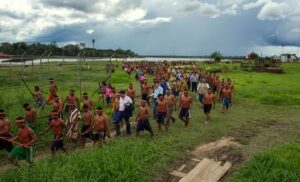This project empirically analyzes the relevance of a new human rights duty-bearer concept from a users’ perspective – a case study in the Peruvian Amazon.
Current debates on human rights in crisis acknowledge that, if human rights are to continue to offer a widely accepted framework for thinking about (social) justice, there is an urgent need to reconstruct the very notion of accountability on which it is pinned. Ground-breaking work is happening in relation to the issue of the notion of duty bearers. Growing acceptance exists, both within legal scholarship, and beyond, which recognizes a territorial State as the sole duty bearer as myopic and increasingly out of sync with realities on the ground.
However, debates are routinely conducted from a legalistic or institutional point of view. To date, only a limited number of studies mapped the perspectives of rights-holders on who they perceive as legally accountable. Given that to further explore (the need for) the development of an effective, coherent and locally relevant multiple human rights duty-bearer framework, the realities and voices of rights holders have to be taken into account, more empirical research from an actor-centered perspective seems necessary. This project contributes to this empirical research by exploring the case of half a century of human rights violations and oil violence in Peru’s historical oil circuit and of many years of indigenous resistance in this part of the Amazon. It aims at a more fine-grained analysis of constitutive elements of local understandings on (alternative, supplementary) duty bearers.
